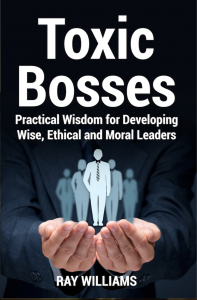By Ray Williams
August 17, 202
How we talk to ourselves can affect our psychological health, and increase motivation, according to several research studies.
We know self-talk can help people’s self-control (e.g. “Don’t do it!”), and boost their morale (e.g. “Hang in there!”) in sporting situations. However, before now, no-one has investigated whether self-talk is more effective depending on whether you refer to yourself in the grammatical first person (i.e. “I can do it!”) or the second person (i.e. “You can do it?”).
Study 1
Sanda Dolcos, a psychologist at the University of Illinois and her colleagues conducted a study in which they asked a group of psychology students to imagine they were a character in a short story. Her study was published in the European Journal of Social Psychology. The character the participants were to imagine is faced with a choice , and the participants are asked to write down the advice they would give themselves in this role, to help make the choice.
Half the participants in the study were told to use the first-person “I” in their self-advice, the other half were told to use the second-person “You”. Then the participants completed a series of anagrams. Those who’d given their fictional selves advice using “You” completed more anagrams than those who’d used the first person “I” (17.53 average completion rate vs. 15.96).
A second study by Dolcos with a new group of psychology students was similar, but this time the students gave themselves self-advice specifically in relation to completing anagrams, and this time the researchers finished up the study by determining the students’ attitudes to anagrams, and their intentions to complete more in the future.
Students in this study who gave themselves self-advice in the second person managed to complete more anagrams, and they said they would be happier to work on more in the future (as compared with students who used the first-person, or a control group who did not give themselves advice).
In a third study by Dolcos, 135 more psychology students wrote down self-advice in relation to exercising more over the next two weeks. Those who referred to themselves as “You” in that advice subsequently stated that they planned to do more exercise over the next two weeks, and they also went on to report more positive attitudes towards exercising, than those students who referred tothemselves as “I”.
Dolcos and her colleagues said theirs was the “first experimental demonstration” that second-person self-talk is more effective than the first person variety, thus complementing “past intuitions and descriptive data” suggesting that people resort to second-person self-talk when in more demanding situations. The researchers speculate that second-person self-talk may have this beneficial effect because it cues memories of receiving support and encouragement from others, especially in childhood.
“Future work should examine ways to actually training people to strategically use the second-person in ways that improve their self-regulation …” they said.
Study 2
In a new study, researchers from Bangor University published in the U.S. National Library of Medicine National Institutes of Health, say that motivational mantras uttered in the second-person perspective — using ‘you’ instead of ‘I’ — contribute to better performance among some athletes.
In the study, which assessed the performance of 22 cyclists, researchers found that athletes who uttered phrases like ‘you can do it’ as opposed to ‘I can do it’ consistently completed the trial quicker and with more rigor.
Experts in sports performance say this is the first study to show how the way ‘self-talk’ may affect athletic performance.
For the study researchers said they chose cycling — an endurance-based sport — because little is known about the psychology of sports geared toward physical longevity.
Study 3
Scientists at the University of Michigan examined the issue of self-talk in a series of studies. In one of the studies the researchers they gave participants were asked to deliver a five-minute talk about why they are qualified for their “dream job” to group of expert interviewers. Their talk was to videotaped. To add to the stress level, the participants were given only five minutes to prepare—during which time they were not permitted to take notes.
The participants in the study were divided into two groups. Both groups were told that self-talk would help to prepare them better under stress, and they should reflect on how they were feeling. The first group was told to use first-person pronouns when preparing themselves (eg: “I feel super stressed and anxious”) while the second group was told to use second- and third-person pronouns (eg: “You feel super stressed and anxious;” or “[person’s name] feels super stressed and anxious”).
The participants then gave their talks and the researchers then examined how successful participants were in delivering their talks, using ratings by the expert interview judges. The researchers also examined how distressed participants felt before and after the task; and finally, the researchers examined how participants assessed potential future anxiety-provoking situations.
The researchers found that participants who used second- and third-person pronouns performed the task significantly better than those who used first-person pronouns. Also, those using second- and third-person pronouns were less emotionally distressed both before and after the task than those who used first-person pronouns. And finally, those—and they appraised future anxiety-provoking situations as more challenging than threatening.
These studies illustrate the principle of psychological distancing, or removing oneself from the stressful situation by referring to themselves as another person. This process is used both in psychotherapy and Neuro-linguistic Programming (NLP). The psychological distancing helps us create a distance from anxiety, fearful or stressful situations and allows us to manage and regulate our emotions better.
Read my new book, available on Amazon:Toxic Bosses: Practical Wisdom for Developing Wise, Moral and Ethical Leaders, where I examine in detail the impact that toxic bosses have on employee well-being.


